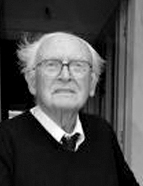

The son of merchants, Harold Livermore attended the Lincoln School and completed his degree in Spanish at Jesus College of the University of Cambridge. In the mid-1930s he won an award from the Hispano British Society , which allowed him to further his studies in Madrid— a process interrupted in 1936 by the outbreak of the Spanish Civil War. It was during this period that he met his future wife, Ann Livermore, a musicologist and later the author of Short History of Spanish Music (1972). Before the Second World War, HL came to Portugal and stayed for a few years, carrying out in-depth research into the country's history and structuring his career in the field of teaching. He was appointed Director of St. Julian's School — an English school in Carcavelos that still exists today— during the 1941-42 school year. Returning to England at the end of 1942, HL resumed his link with the University of Cambridge and taught Spanish Theatre and Latin American History there. This academic career was interrupted by a foray into the diplomatic world when he joined the Foreign Office Research Department. He travelled to and stayed in Brazil, where he led missions with the aim of discussing the problem of that country's loans to Great Britain during the war. In the 1950s, HL ended up occupying the role of educational director of the Hispanic and Luso-Brazilian Councils of Canning House in London, a centre committed to fostering relations between the British world and the Hispanic and Luso-Brazilian universes. He later devoted himself to teaching at the University of British Columbia in Canada, where he was head of the Department of Hispanic Studies until 1976. Towards the end of this period, HL also carried out very significant work as a tutor in the Department of Portuguese Studies at the English Universities of Cambridge and Westminster. The research that underpinned this academic career from an early stage made HL a leading English-speaking expert on the history of the Iberian Peninsula, and more specifically of Portugal. As early as 1947, HL published A History of Portugal and won the Camões Prize. In 1958 he also published A History of Spain, followed by a long series of articles on the two countries. A History of Portugal was the first history of Portugal written by a British author in the 20th century. Although historical research on the country had been promoted by names such as Edgar Prestage (1869-1951) in the first half of the 20th century, these authors tended to focus essentially on specific studies.
This work is financed by national funds through FCT - Foundation for Science and Technology, I.P, in the scope of the projects UIDB/04311/2020 and UIDP/04311/2020.
